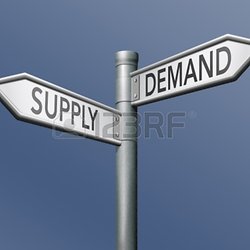 You possibly can never deny that the complete economic activities revolve around a single factor known as demand. Let me suggest Janos Kornai’s glorious The Socialist System: The Political Economic system of Communism. If it is, we need to change the definition of Communist to something like the definition that we presently use for social democratic, or left of centre, or left leaning. I’d love to hear the definition out of their mouths and yet all the give you is the USSR and Germany. The transition process in China differed from the transitioning process in other international locations corresponding to former Soviet blocs for several reasons.
You possibly can never deny that the complete economic activities revolve around a single factor known as demand. Let me suggest Janos Kornai’s glorious The Socialist System: The Political Economic system of Communism. If it is, we need to change the definition of Communist to something like the definition that we presently use for social democratic, or left of centre, or left leaning. I’d love to hear the definition out of their mouths and yet all the give you is the USSR and Germany. The transition process in China differed from the transitioning process in other international locations corresponding to former Soviet blocs for several reasons.

First, firstly of the process, the economic situations in China had been much worse than some other international locations. Agriculture using intensive handbook labor and outdated strategies still accounted for a giant proportion of Chinese economic system. China was not involved with other democratic international locations in the Western world as a result of geographical distance.
Chinese cultures placed a fantastic emphasis on patriotism and collectivism as opposed to emphasis on individualism for most Western international locations. Also, it adopted the gradualism strategy, and the transition process in China spread over a number of a long time, shifting steadily from a central planned economic system to a market-primarily based economic system (Chan 1999). For most of its reform in all features, China followed a dual-observe method that means that it maintained the overall planning function of the government while allowing some mechanisms of free market to some extent. The state still saved close control over the value, and it steadily adjusted the value over time to catch up with the market value. As a result of cautious proceeding of the value reform process, although China did experience some inflation, the inflation fee in China was not as high as the inflation fee in other transitioning international locations.
So as to attract more investment from international international locations, China opened up its economic system partially to participate in the world economic system. The transition process favored a number of the high elite members in the government and enterprises who capitalized on the massive opportunities brought up by the open market. Nonetheless, the original that means of socialism and the concept of a central planning economic system were not suitable anymore. Consequently, the definition of socialism” and the whole ideology system following it had to be redefined. Environmental issues also posed potential threats to the transitioning economic system.
One of the highlights in the Five-12 months Plan includes a five-12 months economic development target at 6.5%, doubling China’s economic system between 2010 and 2020. The only secrets explaining China’s high development is that it is a new market (the largest in reality) and its low-cost labor. As we know, a market economic system is being practiced throughout the developed international locations corresponding to Hong Kong, Ireland and United States. In market system, many of the property sources owned by non-public individuals and corporations. Market economic system can be primarily based on supply and demand with little or no government intervention. In the other words, market economic system offers the absolute power to prices in determining the allocation and distribution of goods and companies which have been supplied in the country. Although the reason is selfish, it works to the advantage of the economic system over the long run.
